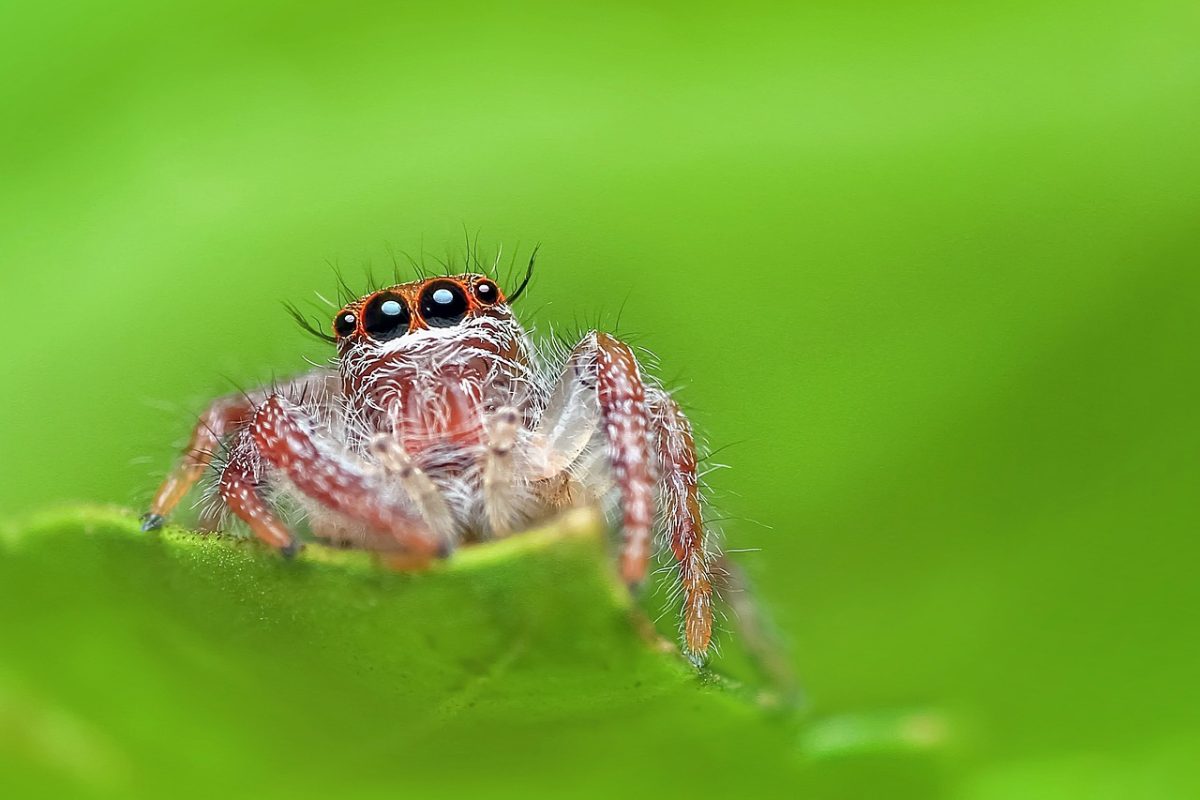Let’s get straight to the point: spiders are your friends, not your foes.
At the very least, spiders are a good animal to have around.
But due to present-day societal conventions and mainstream media, we are conditioned into believing they’re the bane of our existence.
Despite having a history of representing a multitude of traits such as benevolence, creativity and regality, illustrated by their role as “weavers of destiny” in ancient Egyptian mythology, the main attributions that have stuck with them are fear and power.
They are voracious predators adjoined with eight sinister eyes, eight repulsive legs, swift erratic movements and sharp venomous fangs.
In modern media, spiders are commonly associated with Halloween, alongside werewolves and zombies. The use of cobwebs tends to symbolize uncleanliness or abandonment. Horror movies such as “Sting” and “Infested” have featured spiders to evoke fear from the audience.
Arachnophobia, the fear of spiders and other arachnids, is one of the most common phobias in the world. Around 3 to 6% of the total human population have this phobia, and many more look upon spiders in disgust.
Among the sources for this fear are the dreaded black widows and brown recluses, some of the most common spiders in the U.S. Both these genuses of spiders have venom capable of hospitalizing or even killing humans, which has resulted in a misplaced anxiety that all spiders are dangerous to people.
The truth is that spiders are relatively harmless when unprovoked. They will rarely bite a human unless they feel threatened.
Even Black Widows and Brown Recluses pose minimal danger to humans if treated with respect and patience. In fact, there are only an estimated three deaths per year at most from spider bites.
Compare this to the 43 estimated deaths by dog attacks or the tens of thousands of vehicle-related deaths that occur in the United States per year.
Dogs and cars, while very different, are both commonly agreed to be positive additions to human society; one is man’s best friend and the other a symbol of innovation and technological advancement.
Spiders, which are statistically less harmful than them, are played up as being a much greater liability than they actually are.
Now, it’s obvious that there is still a worry for spider bites regardless of how intense they are, but again, they will usually not bite unless they are being provoked; it’s just a waste of venom.
When people are flailing their arms and smacking the spider with a towel, they’re actively increasing their chances of getting bitten.
Perhaps the fact that spiders are small and virtually everywhere is what may prompt people to be extremely wary of them, but this caution is also misplaced.
You probably have caught a few spiders adventuring around your home and felt threatened, scared or annoyed, when the reality is that having a spider roommate is actually really beneficial.
They are nature’s pesticide, feeding upon flies, cockroaches, ants and many other household pests.
A single spider can consume up to 2,000 insects a year, which globally adds up to an estimated 400-800 million tons of insects eaten worldwide per year.
With all the bugs they eat, they help prevent the spread of diseases such as malaria from mosquitoes.
Essentially, a spider resting in a little corner of a home catching rouge pests is a mutually beneficial relationship shared between the arachnid and the person.
As someone who is still recovering from arachnophobia, I know this article likely won’t change your perception of spiders right away. A helpful approach may be to start off small by familiarizing yourself with the more friendly species.
Jumping spiders, encapsulating more than 5,000 species worldwide, are considered to be some of the smartest and cutest of all spiders. With their silly head tilts and big puppy eyes, they’re quite endearing.
Start by exploring footage, pictures or art of jumping spiders, then make your way up to other genuses like the house spiders, grass spiders, tarantulas and maybe even wolf spiders.
Sooner or later, you’ll find yourself becoming more calm and less fearful around the everyday spiders that roam past you on your way to school or work.
Maybe you’ll even hold one in your hand and think of the spider as a new friend you have made.
So please, just be nicer to the little eight-legged buddies in your life.



